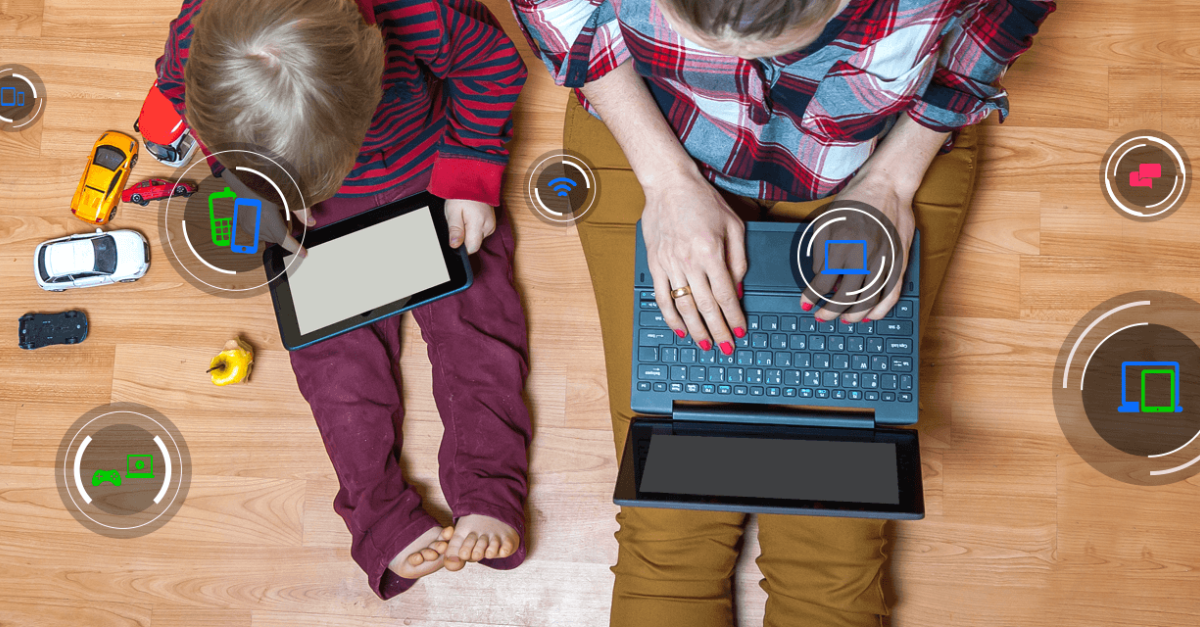LIFESTYLE
How to Establish Guidelines for Your Kids’ Tech Use

Technology serves as a powerful tool to help teenagers with learning and socialization. But there are dangers when children are allowed to access technology without any guidance. Parents want to give children access to the benefits that personal electronics can offer, while also protecting them.
That’s where guidelines come into play. Parents can help teenagers make good decisions about the use of smartphones, computers and video games. Creating rules they must follow and monitoring their use of technology will help them learn healthy habits. It’s also important to establish consequences for breaking those rules, and to make clear they could lose privileges.
Consider the following guidelines as a starting point in overseeing your child’s use of technology. Be consistent in applying your rules and when imposing consequences when those rules are violated.
The proper time and place
Without any guidance from parents, teenagers would stay glued to their personal electronic devices. They enjoy interacting with friends on social media. They can spend hours playing video games. They wouldn’t think twice about watching television while eating meals.
Parents must establish the proper time and place for technology in their children’s lives. Let them know there are rules to follow when it comes to their electronics. For example, establish a rule that there are no phones for kids allowed at the kitchen table. Meals are family time, a chance to interact and to discuss the events of the day.
The same rule can apply to television. Make it a point to turn off the TV during meals. Explain that there is an etiquette to follow when it comes to technology. It must not interfere with normal family interaction, particularly during important meals shared by all.
Work always comes first
Homework is an important task that should come first. Although children want to use their personal electronic devices after a long day at school, that’s not a good idea. Explain that their school day includes a period of time to complete homework. Technology serves as a reward after completing their work, a way to unwind after fulfilling their responsibilities.
This lesson serves to instill a proper understanding of technology’s place in your child’s life. It also helps promote a strong work ethic that will serve your children well in life.
Create a healthy sleeping environment
Your children need sleep to help their bodies recover from busy days and to maintain concentration. Technology can serve as a distraction to good rest. You can establish important rules to limit access to technology before bedtime and in their bedroom.
First, establish a time each night when electronics are turned off. That means no falling asleep with the television on and no late night texting. Discuss with your children the studies that show late night screen time interferes with sleep. Provide alternatives to technology, such as reading a book before going to bed.
Second, remove televisions and kids’ phones from their bedrooms. Some families prefer allowing their children to watch television in their own rooms because it doesn’t interfere with parental viewing. But you can create a separate viewing room for children that removes TVs from their bedrooms. Also, require your children to surrender their personal devices before going to bed. That way, they aren’t tempted to check texts during the night from friends.
Public access technology
Another way to limit overuse or misuse of technology is to set up a computer area in your home. This open area will provide your children with access to the computer in a public space. It will discourage misuse of the computer and help you monitor the time spent online. There is too much inappropriate content online that children can access, even accidentally.
With a computer placed in an open area for all family members to use, you can better protect your children.
It’s also important for children to understand that you can and will monitor their technology use. They have a right to privacy, but not always when it comes to technology. Establish a rule that your children share their passwords with you on their personal devices. They must accept you as friends on social media accounts. Explain that they shouldn’t do anything online that they wouldn’t want to share with you.
Never share personal information online
It’s difficult for children to understand how accessible their online activity is to others. Parents must teach them the rules of online interaction. Establish proper privacy settings on their online accounts and social media. Tell your children they are only allowed to friend people online when they know them from school, work or family. Explain the potential dangers of accepting strangers into their online circle of friends.
It’s also important for children to understand what type of information to share online. Discuss why it’s important not to post personal details online, such as your home address. Many people unknowingly share too much information, such as personal details, work location and other information. It’s also important to set strict limits on the type of pictures they can post.
Children also are inclined to over share, and that goes for what they post online. Parents should prevent their children from posting personal family matters online. They should understand it’s not appropriate to disclose family troubles or other matters online.
Technology offers amazing opportunities for children. It enhances creativity, expands their social circle and offers great learning opportunities. Make sure your children get the most from technology by applying important guidelines for its use.

